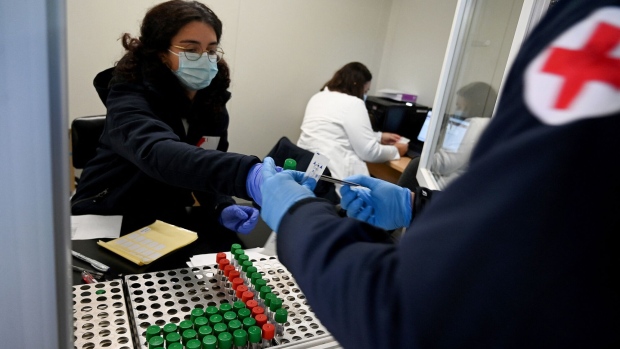Apr 11, 2024
All You Need to Know About Whooping Cough as Fatal Outbreaks Rise
, Bloomberg News

(Bloomberg) -- Whooping cough is making a comeback in several parts of the world, with deaths reported in China, the Philippines, Czech Republic and the Netherlands, and outbreaks in countries including the US and UK.
The infection, whose scientific name is pertussis, is difficult to detect early and can be fatal, especially in children and babies. Thirteen deaths were reported in China in the first two months of 2024, with 32,380 cases reported — more than 20 times higher than a year earlier, according to the National Disease Control and Prevention Administration. The Philippines this week said infection figures were 34 times higher than last year, with 54 deaths recorded in the first three months of 2024.
Here’s everything you need to know about the disease:
What is whooping cough?
The highly-contagious disease is caused by the bacterium Bordetella pertussis, which targets the upper respiratory system, releasing toxins which can cause the airways to swell, according to the US Centers for Disease Control and Prevention (CDC).
What are the symptoms?
Early symptoms of whooping cough look very much like the common cold — with a stuffy nose, low-grade fever and a mild cough often reported. That makes it difficult to diagnose until more severe symptoms emerge.
After a week or two symptoms can progress to “rapid, violent, and uncontrolled coughing fits,” according to the CDC, accompanied by a high-pitched “whoop” sound upon inhalation at the end of the fit. Coughing fits can go on for up to 10 weeks.
Who is most at risk?
Children are more likely to suffer the most violent symptoms of whooping cough, while babies don’t usually cough but can stop breathing. Teenagers and adults often exhibit more mild symptoms, but even then, debilitating coughing fits can keep them up at night. One complicating factor is that adults with no obvious signs of the disease can continue to spread the infection.
How do you treat it?
Once diagnosed, preferably before coughing begins, doctors will generally treat the infection with antibiotics. If a patient has been coughing for more than three weeks, antibiotics are not required as the bacteria has likely left the body and the coughing is a result of damage done to the airways.
Is there a whooping cough vaccine?
In China, free vaccines are usually given in a combined shot that also protects infants against diphtheria and tetanus. In the US there are two vaccines available — one for children under the age of seven, and one for people older than seven. In the UK, shots are routinely given to babies, while the Philippines has warned of a potential shortage in supply by May.
--With assistance from Ditas B Lopez.
©2024 Bloomberg L.P.


